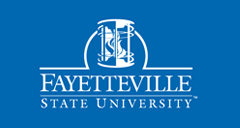Abstract
The purpose of this instrumental case study was to explore stakeholders’ perceptions of the culturally responsive leadership practices of charter school leaders. The goals were: (a) to explore how the school leadership team perceived culturally responsive leadership in a K-12 charter school in North Carolina, (b) to explore how the teachers perceived culturally responsive teaching and learning in a K-12 charter school in North Carolina, and (c) to explore how parents perceived a culturally responsive home-school connection in a K-12 charter school in North Carolina. The participants were members of the school leadership team, teachers, and parents. Results revealed the school leadership team, teachers, and parents were unanimous in their belief that culturally responsive leadership created a sense of belonging for all stakeholders. The results suggest that charter school leadership should perform functions that include: (a) fostering a common view of the organization’s vision and mission among all stakeholders or members of the group by modeling culturally responsive practices; (b) providing an equitable distribution of resources, professional development, and other opportunities to meet the needs of diverse students and their diverse teachers; and (c) providing conditions that allow teachers and parents to react to the learning needs of diverse students.
Recommended Citation
Jones-Goods, Kimberly M. and Okpala, Comfort
(2015)
"Stakeholders’ Perceptions of Culturally Responsive Leadership in a K-12 Public Charter School in North Carolina,"
Journal of Research Initiatives: Vol. 1:
Iss.
3, Article 3.
Available at:
https://digitalcommons.uncfsu.edu/jri/vol1/iss3/3
Included in
Bilingual, Multilingual, and Multicultural Education Commons, Educational Leadership Commons, Elementary and Middle and Secondary Education Administration Commons, Urban Education Commons
